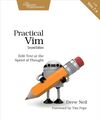Books
Though not a voracious reader I enjoy wide diverse topics. We should all definitely read more. Here are some books that I've enjoyed:

Title: Efficient Linux at the Command Line.
Author(s): Daniel J. Barrett.
Summary: As a long time GNU/Linux and FreeBSD user and knowing most of the things explained in this book it was nevertheless a great purchase. There are a lot of detailed explanations on why some taken for granted things work that will definitely sharpen your shell understanding. Also a great reference on shell tools and mindset needed when writing non trivial one-liners to perform complex data processing and transformations.

Title: Las venas abiertas de America latina.
Author(s): Eduardo Galeano.
Summary: A book to understand why Latin America has been poor since Colombus times. Certainly a book that deserves to be read and taught in every highschool so current and upcoming generations are fully aware about the curse that suffer all countries from Mexico to Argentina.

Title: Le Comte de Monte-Cristo.
Author(s): Alexandre Dumas.
Summary: Unfairly detained and confined in Chateau d’If island prison, Edmond Dantes will be moulded by valuable lessons that will render him always a step ahead of the people who betrayed him. The classic adventure by Dumas can hardly disappoint anyone who enjoys good novels.

Title: Hypermedia Systems.
Author(s): Carson Gross, Adam Stepinkski & Deniz Aksimsek.
Summary: A must read for all developers who want to understand what hypermedia and web development is all about. The authors present the foundational web concepts in a crystal clear exposition. Then HTMX, Hyperscript and AlpineJS are discussed with unbiased pragmatism as excellent simple alternatives to today's most hyped web frameworks. The final part of the book is devoted to Hyperview, a way to construct mobile applications taking advantage of hypermedia.

Title: A Matter Of Risk.
Author(s): Roy Varner & Wayne Collier.
Summary: It's 1968 and the Soviet Union just lost one of its subs with three nuclear ICBMs. How far a government would go to learn military secrets from its enemy? This is the real story of one of the most incredible and expensive CIA covert operations to date.

Title: Digital Apollo.
Author(s): David A. Mindell.
Summary: A book about the electronic marvel that assisted man reaching the moon. It tells the story of its development as well of the different teams (their tensions) and the astronauts who at the very beginning were reluctant of any digital aid but their piloting skills. A highly recommended and interesting read.

Title: Practical Vim.
Author(s): Drew Neil.
Summary: With this book learning the Vim editor is a straightforward task. The author clearly exposes not only the main concepts and mechanics behind Vim but also useful tips that even advanced users can benefit from. The book is full of examples that actually show what happens each time you hit the keyboard, making it a valuable learning tool for grasping the progressive effect of different Vim commands.

Title: Dealers Of Lightning. Xerox PARC and the dawn of computer age.
Author(s): Michael A. Hiltzik.
Summary: Before Apple there was a computer that was at least 10 years ahead of its time. It's the computer as we know it today. Technologies that were almost unconceivable in the 70's like graphical interfaces, networking, laser printing, and software development tools, were already implemented by the brightest minds of its time. This is the story of the legendary Xerox PARC laboratory, its unprecedented achievements and a legacy that reaches us to this very day.
